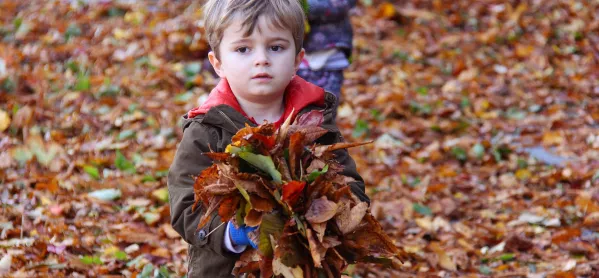On a cold, frosty clear morning, shivering around a log fire I count some 15 three and four-year-olds busy making, cutting, drilling and sawing.
One grandad (that’s me) and his granddaughter are experiencing the outdoors with few rules. There is help provided, but only when needed. Over the next two hours, the little one made her own bread, moulding it onto a whittled stick and cooked on the open fire. (Not once did I hear the staff saying that fire could burn...)
Welcome to a preschool forest school experience.
Once the bread was cooked, my granddaughter gorged on it with accompanied tomato soup and then proceeded to carve her own pumpkin, using the knife to cut out the eyes and the drill to take out the insides. She then took a saw to several pieces of wood. No instructions, just tools left available with equipment to use or not.
Two hours: over in a flash.
There’s nothing groundbreaking about this you might say: but for this little three-and-a-half-year-old she had experienced education as exciting, and hands on. Staff were experienced in the skill of allowing the children to discover for themselves, and to get involved only when needed.
As a school leader, I long advocated for the use of the outdoors to support teaching as our school had a purpose built "outdoor classroom".
So the benefits might be obvious, but could we go further? At the preschool forest school, we found three and four-year-olds in total control of their learning, taking risks and experimenting...
And then, of course, they start school and unlearn all of this.
This, of course, does a disservice to many excellent reception classes and teachers throughout the country. However, far too many settings do manage to unwind many of their pupils’ independent and experimentation skills in the first few months of formal school.
For too many, regimentation is the one and only order of the day. A combination of an obsession with formalised learning and risk-aversion means the joy is driven out.
Staff at this forest school that I visited also work a great deal with secondary pupils. They talk of young adults turned off education, due to its relentless pursuit of academic excellence. For one half-day a week, they leave this behind, they become truly engaged with their learning. But then they have to return to their schools.
Getting children to learn and to love learning is why we are all in this profession. To achieve this we need children to be engaged.
However, a curriculum diet of didactic and regimented learning is proving a turn off for too many children: we need more schools to throw open their doors and send their children running into the wilderness beyond.
Colin Harris led a school in a deprived area of Portsmouth for more than two decades. His last two Ofsted reports were "outstanding" across all categories
To read more of Colin's articles, visit his back catalogue




